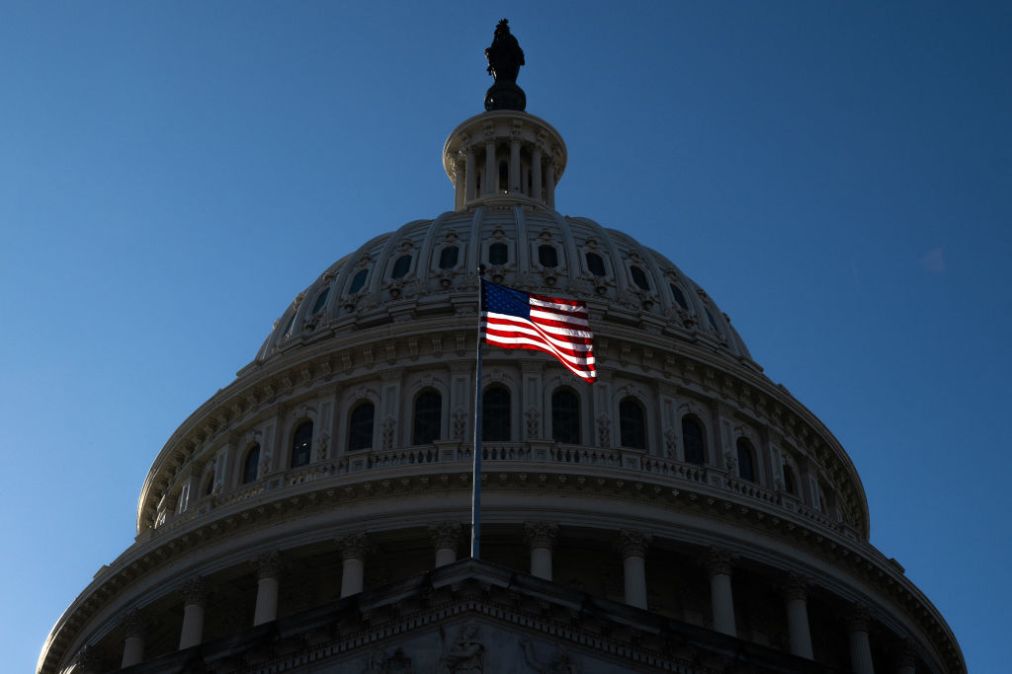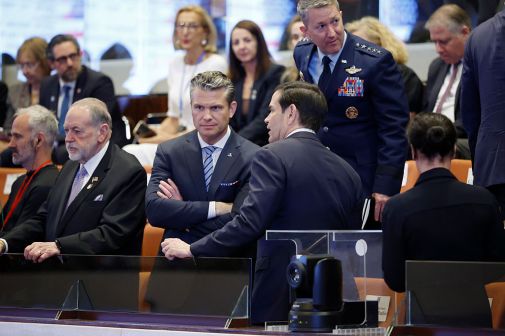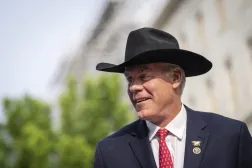Congress’ new Foreign Arms Sales Task Force eyes disruptive reforms

The House Foreign Affairs Committee’s new Foreign Arms Sales Task Force hosted its first closed-door meeting on Wednesday, where lawmakers, aides and industry officials from legacy vendors and startups discussed bureaucratic challenges that are hampering international partners’ speedy access to U.S.-made defense systems — including drones.
A senior committee staff official involved in the meeting briefed a small group of reporters Thursday about key issues the stakeholders’ referenced. They also shared new details about the bipartisan group’s six-month plan to influence major government reforms targeting capabilities transfer and acquisition options.
“[HFAC Chairman Rep. Brian] Mast and his fellow members of the committee on both sides of the aisle have long recognized the impact that the delays and lack of transparency associated with our current foreign arms sales process has on national security and our ability to boost interoperability with our partners,” the official said.
Mast, R-Fla., launched the task force in late March with Reps. Ryan Zinke, R-Mont., and Madeleine Dean, D-Penn., at the helm.
America’s existing mechanisms for foreign military sales are seen by many as lagging behind global demand.
“In recent years, our allies must often choose between waiting on the U.S. for needed defense capabilities — or potentially looking elsewhere, at the expense of U.S. influence and strategic priorities, domestic defense manufacturing and American jobs,” the senior committee staff official told reporters.
The new group aims to build on progress led by a similar congressional “TIGER” team and task force that operated in a prior session, which the official noted put forward multiple policy and lawmaking recommendations, including some that were advanced to the committee.
“This time around, obviously, we’ll be working on a report that will further legislative and policy goals. And we’ve had initial engagements with the [second Trump] administration and we are waiting for the executive order, as well,” the official said.
As they suggested, reports have recently surfaced that President Donald Trump’s new appointees are exploring an executive mandate that would ease certain rules that govern U.S. military equipment and service exports.
“I think we’ve seen an extra ‘wind in the sail,’ in terms of what has been something that Congress has been involved with, that’s linked up with the administration,” the official said.
They noted that the new task force aims to expand upon some of the momentum Trump’s National Security Advisor Mike Waltz helped influence during his tenure serving in Congress and on that previous TIGER team in 2024.
Beyond reporting and resources to help stakeholders “digest” any forthcoming executive orders, the team also hopes to pave the way for interdepartmental memorandums and other instructions or guidance for agency leadership.
“It’s fair to say this will be a pretty broad look. If we were to have this effort 10 years ago, maybe autonomous [systems] wouldn’t be as big of a focus, but I think it’s emblematic of an issue that needs additional attention as technology has advanced … [and this] challenging weapon sales process isn’t able to keep up with cutting-edge advances in technology that support the warfighter for ourselves and that of our allies,” the senior committee staff official told DefenseScoop.
In America, domestically produced defense assets and services that are delivered to foreign countries are regulated by Congress. These transactions generally entail either government-to-government sales (Foreign Military Sales, or FMS) or Direct Commercial Sales (DCS).
“I will also quickly mention that the Trump administration is laser-focused on getting the FMS and DCS process where it needs to be — and President Trump has put the right people in the right positions to make that happen,” the official said.
They added that the new task force is “taking a wider view” compared to efforts led by Waltz and others during the last session, by focusing on reforms across both FMS and DCS.
Lawmakers who participated in Wednesday’s engagement heard insights and recommendations from nearly two dozen attendees. The official noted the industry participants were broadly “representing DOD primes, innovative startups, small arms manufacturers.”
Regarding main themes from the confab, the official said: “First, the foreign arm sales process as it stands today is overly complex, lacks transparency and poses significant risk to American competitiveness, to our national security and that of our allies. Second, charting an effective path forward will require bipartisan and interagency buy-in. Lastly, it’s safe to say that each participant recognized the urgency for making reforms to the process and ensuring America can get the right weapons to our allies and partners as fast as possible.”
Going forward, the task force will “continue to hear from those on the frontlines of this issue,” the official told reporters.






